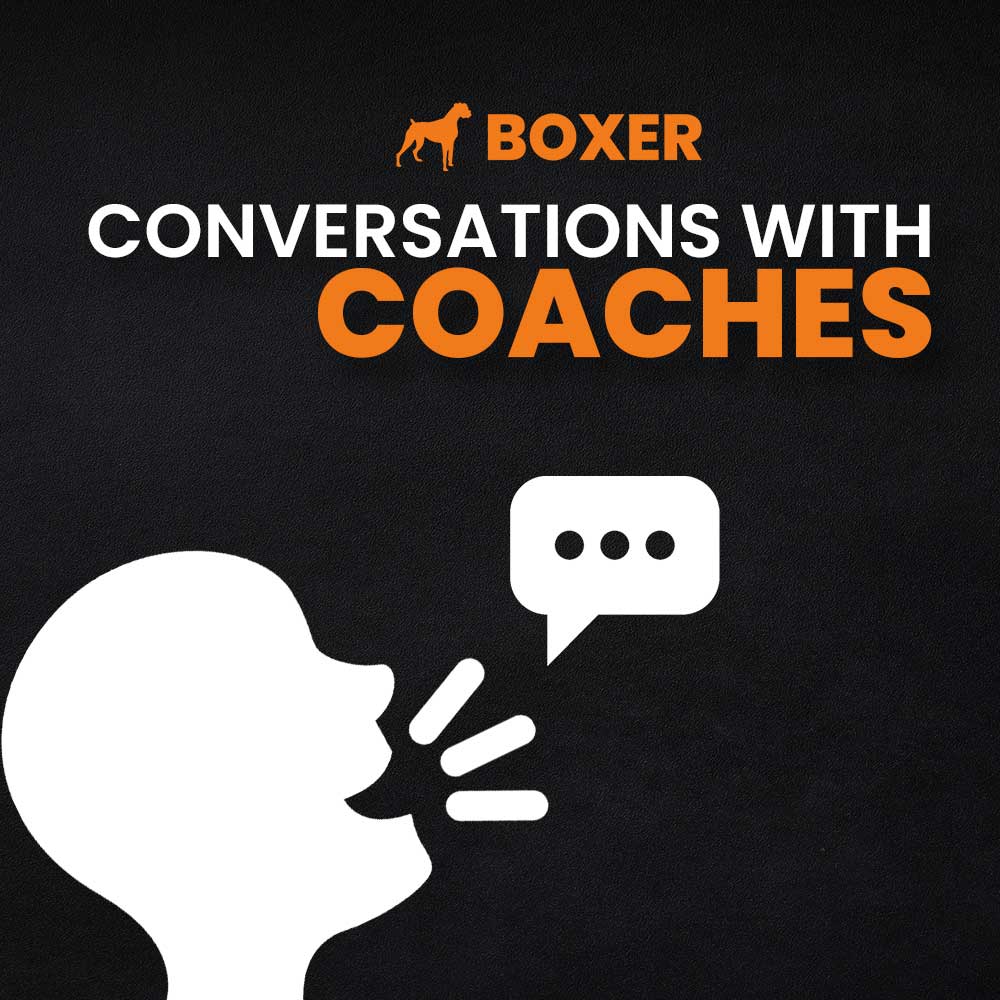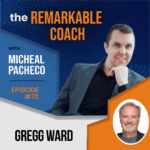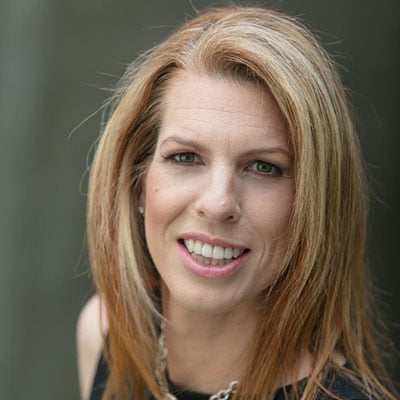Kevin Stafford 0:01
Hello, everyone, and welcome to another episode of the coffee with coaches podcast. I’m your host, Kevin. And today I have with me Greg ward. I will keep this short because I could read this, I could read the bio of Greg for probably five to 10 minutes and still have plenty to cover. Greg is an award winning Best selling author, speaker and executive coach who’s on a mission to drive leadership and organizational upgrades via respect and respectful leadership. Our ESP CT, Greg, thank you so much for being here today. I’m really excited to talk to you. I was reading up on you before the pod, you have lived an amazing life. I feel like we could talk for 15 hours, but I promise to keep it to 15 minutes.
Gregg Ward 0:42
Thank you so much. It’s an honor to be here.
Kevin Stafford 0:45
Well, let’s get cracking. Let’s get into it. How did you discover or realize? Or how were you told that you were a coach? And then where do you go from
Gregg Ward 0:53
there? Well, it goes back. It’s a crazy story. But essentially, I trained as an actor, and a writer, playwright, director and producer in theater, and I worked in New York City. And while I was working as a director, you it gets pretty quickly that you have to realize that when it comes to actors, you have to do a lot of coaching. You can’t just tell them what to do. There’s a lot of helping them understand what their motivation is, and what the arc of the character and all that kind of stuff. So then I fell into a job using live professional theatre as a training tool for the New York City Police Department, which was much more successful than any of us thought it would be. And again, we were using professional actors working in, for lack of a better word, roleplay situations with police officers, and I was coaching these officers. How do you deescalate the situation? What can you as a police officer say that will get this this person you’re interacting with to calm down. So again, it was I was like, like the cop whisperer kind of thing. And then eventually, I started using theater, and what we now call experiential learning and coaching incorporations, mostly on interpersonal communication issues, which led me to the work I do now which I serve as an executive coach to very senior folks in very large companies and federal government. And also helping people find their purpose as a leader, communicate better with each other, and decrease tension and increase collaboration, and teamwork.
Kevin Stafford 2:42
Awesome. Yeah, blue collar, white collar respect. And leadership knows no color color. It’s for everybody.
Gregg Ward 2:50
It is for everybody. And what’s really amazing is when we started researching this work, I created what I call the Center for respectful leadership. About three years ago, when we started researching this, and we looked into the neuroscience, we found out that respect and disrespect have very little to do with cognitive rational thoughts. It’s all about what happens in your very primitive reptilian brain. For example, if I treat you with respect in a way that you expect to be treated respectfully, then it’s very likely your brain is going to release oxytocin, the hormone called oxytocin, also known as the love hormone, the bonding hormone, and you’re gonna feel good. And if I keep doing that, you’re going to put on a metaphorical pair of sunglasses, and, and on the lenses of those sunglasses, it says respectful person, and you’re going to keep treating me and seeing me as a respectful person. Now, of course, the opposite is true. If I treat you badly in a way that you consider disrespectful, your brainstem and your amygdala are going to release at least cortisol, the stress hormone, adrenaline, and there’s another hormone, which is completely unpronounceable, so we’ll forget about it. But at that point, if you’re under the influence of all these powerful stress hormones, and fight flight, freeze hormones, there ain’t a whole lot of thinking going on in your neocortex. So there you’ll, if I if I continue to treat you in a way that you consider to be disrespectful, by golly, you’re going to put on sunglasses that says disrespectful person on the lenses, and you’re going to have confirmation bias going on about me in the same way you do when I treat you with respect. So it’s very primitive. It’s very much about emotions, and there’s not a lot of cognitive, rational thought going on when it comes to respect and disrespect.
Kevin Stafford 4:42
I think that I love how that foundational was the first word that popped to mind but really how you It’s important how you acknowledge that, because a lot of times when we talk about respect, I’m kind of stumbling my way into my point here. People think of it as their it’s conceptual. It’s a feeling it’s primitive. They kind of they understand that in a certain way. level. And it’s also it’s literally written on your brain. Like there it’s written on your body, the way that you respond to it is biochemical, like it is there. And it’s important to understand that too, because then because you can understand why you’re responding to someone in a particular way, that it’s not just a feeling or sort of in a femoral blackbox sense of, I just kind of have a feeling about this person, you can understand the what and the why. So that you can better engage with that person, you know, in the present and going forward.
Gregg Ward 5:29
That’s right. And the challenge is, especially for your free, feeling disrespected, how do you manage your own emotional state, or get gifts together, as we like to say, get that shift together that emotional shift to the negative to the angry to the fight, flight freeze? How do you manage that in order to continue to work with this person who you feel justice respected you. And here’s the other crazy thing, if you are treated disrespectfully and really feel it, it’s likely you will never forget it. And if someone treats you disrespectfully, again, in a similar way, it’s going to trigger all of those feelings again, you’re going to have that physiological response all over again, this is why it’s so very, very powerful. And yet so few people really understand it. So they devalue it, they shunted to one side, they say, adds respect and disrespect, not that important. It’s incredibly important. And that’s my mission in life to be the Pied Piper of respect and talk to people about it. Wherever I go.
Kevin Stafford 6:36
I love it, the Pied Piper of respect. Let’s talk about the song you’re playing on that pipe, actually. So today, these days? How would you describe who you coach and how you coach them? Do you primarily do one to one work? So yourself? I know you’re a keynote speaker as well, obviously, you’re an author. So it seems like you have a lot of ways in which you reach people. So who are you reaching these days? And how are you reaching them? What’s your approach?
Gregg Ward 6:57
That is an excellent question. I am reaching them in every way you just message mentioned, when it comes to senior executives, I’m either in person in fact, I’m on my way to an in person coaching session, at their offices, and really kind of closing the door and having candid and, and powerful conversations with them about what’s going on in their lives, as well as their businesses. That’s one way to do it. I’m also doing a lot of virtual coaching. The other thing that we have CRL are standing up or getting a lot of folks saying, Hey, do you have mastermind groups? And the answer was until just this month, no. But now we’re standing up a series of what we call CEO coac hing groups that are all about respect and respectful leadership, we believe we are convinced all the data shows us that organizations that have what we call arcs inside of them actively respectful cultures are the ones who are going to see much better business outcomes, higher retention, fewer conflicts, fewer people quitting, like we saw in the great resignation than other organizations. So we believe respect is a a significant industry booster, and imperative rather than a nice to have. So we’re doing these coaching once a month for CEOs only invitation only coaching groups, for CEOs who get it, who value it who value respect, they want to practice respect, and they need help.
Kevin Stafford 8:28
And that’s another great dichotomy to where it’s not an not an either or, but a both and where it’s not just, it’s, you know, it’s the right thing to do, or it’s a nice thing to have. It’s like no, no, this is imperative not just to like the morale of your company, or the satisfaction of your employees, this is imperative to your bottom line. This will hit you on your account books, this will show up in your numbers. Absolutely.
Gregg Ward 8:50
We have data we compare to big box stores. My my, my lawyer says never named these companies, but I’m gonna do an AMS club, we compare Costco and Sam’s clubs. And the cultural differences couldn’t be greater between those two organizations. And guess who has all the great metrics? Who has all the great numbers? Who has the highest retention in retailing? It’s Costco, who has all the poor numbers, who has very low retention, well, basically industry standard, it’s of course, Sam’s Club. And we also compare to airlines, we compare southwest with United. And the differences are so obvious. And what’s really interesting is folks at Southwest even though the people who work there rate their company at a pluses across the board on Glassdoor, whereas the folks that united give them CS and C pluses that folks that united get paid a lot more than they do at Southwest. So if you’re a CEO, who do you want interacting with your customers? Do you want the folks who work for United who give their leadership a c plus rating, or do you want the folks at at Southwest who are giving their leadership and a plus Writing? I think we all know what the answer is.
Kevin Stafford 10:02
And you ask the right questions. The answers are obvious the answers fall right out of the back end of the right questions. And I like that you’re, you’re asking the right questions. I love that.
Gregg Ward 10:12
Yeah. And, you know, when I’m when I get up in front of CEOs, a lot of them say to me, ah, everybody’s a snowflake these days, everybody who needs to be politically correct, I’m so tired of this. And they start railing on about canceled culture. And you know what I do, I take a big velvet covered two by four, and I hit them up the side of the head, and I say, grow up, get over yourself. Just because you were raised and treated like crap, when you will came up through the ranks doesn’t mean my three brilliant millennial children who are highly motivated, are going to put up with your nonsense for one millisecond, because these days, they rule the roost, and they will jump from your company in a heartbeat if you treat them with disrespect. So get over your anger, get over yourself, start to adapt, be the smart human being that I know you to be, and start to develop your emotional intelligence and be more respectful. And you’ll do just fine.
Kevin Stafford 11:10
And I’m like, I’m like ready to run through a wall right now. That’s like, seriously, I’m not blowing smoke up here. But that was legitimately inspiring. I 100%. Agree. I love I love your passion. I love your articulation. I just love your message. And I love that it’s got the it’s got the force of certainty, the force of No, this is important. I know it. I’m going to tell you why and show you have. And that’s couldn’t ask for anything more from Coach.
Gregg Ward 11:33
Thank you. And I’m very direct. And people always say to me, Wow, isn’t that disrespectful, I say hell no, you can be very direct, and do it in a respectful way. So that the person you’re giving that coaching to can hear it, that’s why I say it’s a velvet cupboard to buy for you. And that you can, you can also treat them with disrespect, and they’ll shut down. So I’m not going to win if I if if I don’t give it to them in a way that they can hear it and take action on it. So at the end of the day, I’m trying, I bring my passion and my experience, I’ve been doing this work for 25 years, I’m kind of too old to dance around it. I’m a very nice person. But nice is not all that important. When it comes to respect and respectful leadership. It’s all about being clear, being kind, being compassionate, being understanding, but also setting a direction being true to your values true to what you believe in. And, and and and being honest with other people and taking care of them. The rest will take care of itself.
Kevin Stafford 12:38
Well said and here here. Before I let you go and I don’t want to but I’m going to because I promised I would tell me and tell the audience two part question. Where to find you where to find out more about you. And then also where do you like to meet people and engage digitally speaking like, Do you have a preferred social media where you’d like to connect with people or have them like start conversations?
Gregg Ward 13:00
Yes, those are great questions. The first the first question around how to get in touch with me, go to respectful leadership.org, respectful of all one word.org. And you’ll find the center for respectful leadership there. I’d love it. If people would buy my book. It’s called the respectful leader. And you can find it on Amazon and be at Barnes and noble.com. And how I like to interact with people I find that LinkedIn is a great way to connect. Either look me up directly Greg, GRE, G, G, Ward, w a r d, or they can look up the center for respectful leadership and that’ll pop up in LinkedIn as well. We also have a newsletter called respectfully resist, and that’s on that’s in LinkedIn as well. So if you do a Google search for respectfully resist newsletter, LinkedIn, it’ll take you right to it and we have I write articles. I used to be another thing I did, I used to be a journalist. And so I’m a pretty good writer. And I you can read all our articles there and they get a lot of information.
Kevin Stafford 14:08
Yeah, it was to try and keep us on point it was very tempting for me but I resisted mentioning the 86 Mets because I know you were in your like kind of around around that time and they’re like that was my first sports team love when I was younger. The amazing, the amazing love forever be a part of me.
Gregg Ward 14:26
Understand, I’ll never forget it. I’ll never forget how they feel when they last out was a cat a flyball to centerfield they threw it up in the air and then everybody flooded down on the on the field. I will never get it. And now I live in San Diego where I’m really trying to recreate those feelings and the Padres let me down every single year.
Kevin Stafford 14:46
You’re gonna have to have you have to like to have a separate like fork off podcast just for sports talk. I’ll have I’ll have you on and we can. We can spend well, probably too much time talking about that. But, Greg, I’d be respectful of your time. Thanks. Thanks so much. This has been fantastic. I’ve loved talking with you. I highly encourage anybody who’s listening to this, to find out more about you. Honestly, respect as a foundation for any and all kinds of leadership in this world, personal professional everywhere in the family at home anywhere. is of the utmost importance. Greg gets it right will tell you about it. He will just tell you about it. He’ll tell you about how. So thank you, Greg. Thank you, audience. Thank you, everyone.
Gregg Ward 15:23
Thank you very much. It’s been a pleasure. We’ll talk to you all again soon.












